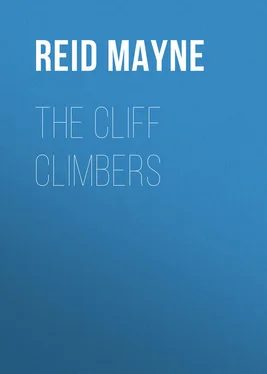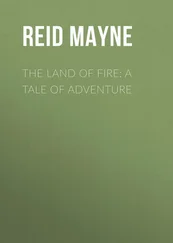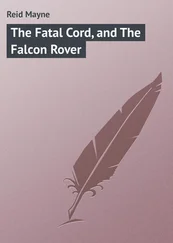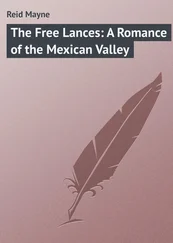Mayne Reid - The Cliff Climbers
Здесь есть возможность читать онлайн «Mayne Reid - The Cliff Climbers» — ознакомительный отрывок электронной книги совершенно бесплатно, а после прочтения отрывка купить полную версию. В некоторых случаях можно слушать аудио, скачать через торрент в формате fb2 и присутствует краткое содержание. Жанр: literature_19, foreign_antique, foreign_prose, foreign_children, на английском языке. Описание произведения, (предисловие) а так же отзывы посетителей доступны на портале библиотеки ЛибКат.
- Название:The Cliff Climbers
- Автор:
- Жанр:
- Год:неизвестен
- ISBN:нет данных
- Рейтинг книги:4 / 5. Голосов: 1
-
Избранное:Добавить в избранное
- Отзывы:
-
Ваша оценка:
- 80
- 1
- 2
- 3
- 4
- 5
The Cliff Climbers: краткое содержание, описание и аннотация
Предлагаем к чтению аннотацию, описание, краткое содержание или предисловие (зависит от того, что написал сам автор книги «The Cliff Climbers»). Если вы не нашли необходимую информацию о книге — напишите в комментариях, мы постараемся отыскать её.
The Cliff Climbers — читать онлайн ознакомительный отрывок
Ниже представлен текст книги, разбитый по страницам. Система сохранения места последней прочитанной страницы, позволяет с удобством читать онлайн бесплатно книгу «The Cliff Climbers», без необходимости каждый раз заново искать на чём Вы остановились. Поставьте закладку, и сможете в любой момент перейти на страницу, на которой закончили чтение.
Интервал:
Закладка:
She was not to be kept waiting any longer. Almost on the instant her provider alighted on the projecting spur, with a toss of his head he jerked the piece of snake up into the air, and then caught it as it came down again – not with the intention to swallow it, but only to get a better grip, in order that he might deliver it the more adroitly into the mandibles of his mate – now protruding through the aperture, and opened to receive it.
In another instant the savoury morsel was transferred from the beak of the male to that of the female; and then the ivory forceps of the latter, with the snake held tightly between them, disappeared within the cavity.
The old cock stayed not a moment longer upon the tree. He had served his mate with her dinner, and perhaps he had yet to bring on the dessert. Whether or not, he rose immediately afterwards into the air, with the same clangorous clapping of his wings; but this time the noise was accompanied by the clattering of his horny mandibles, like a pair of castanets, causing a sound not only singular, but, if heard by strangers, calculated to beget within them a considerable feeling of alarm.
Chapter Sixteen.
A four-footed burglar
After the departure of the bird, that had taught our young adventurers so interesting a chapter of natural history, the elephant once more engrossed their attention. Not that there was anything new in the movements of the latter – for it was acting just as before – but simply because they knew that, so long as it remained upon the ground, they would have to stay in the tree; and they naturally bent their eyes upon it, to see if it was showing any signs of moving off. They could perceive none. Not the slightest appearance to indicate its intention of departing from the spot.
While engaged in regarding the besieger, their eyes were of course removed from the sycamore; nor might they have been again turned towards that tree – at least, not for a good while – but for a sound that reached their ears, and which appeared to proceed from the direction of the hornbill’s nest. It was a soft and rather plaintive sound – unlike any that had been made by the rhinoceros bird; nor was it at all like the voice of a bird, of any kind. It was more like the utterance of some four-footed creature; or it might even have been a human voice pronouncing the syllable “wha,” several times repeated.
That it was neither bird nor human being, Ossaroo could tell the moment he heard the first “wha.” Almost as soon were the others convinced that it was neither: for on turning their eyes to the sycamore, they saw upon the projecting spur that had been so lately occupied by the hornbill, a creature of a very different kind – in short, a quadruped.
Had it been in an American forest, they might have taken the creature for a racoon though a very large one. On closer scrutiny, many points of resemblance, and also of difference, would have become apparent. Like the racoon, it had plantigrade feet, a burly, rounded body, and a very thick hairy tail – ringed also like that of the American animal – but unlike the latter, its muzzle, instead of being long and slender, was short, round, and somewhat cat-like; while its hair, or more properly its fur, formed a thick even coat all over its body, limbs, and tail, and presented a smooth and shining surface. Its general colour was a very dark brown, streaked and mottled with golden yellow; and Caspar remarked, upon the moment of seeing it, that it was one of the handsomest creatures he had ever beheld.
The naturalist Cuvier had made the same remark long before Caspar’s time. So said Karl, on hearing the observation escape from the lips of his brother.
Ossaroo knew that the animal was the “wha,” a name derived from its ordinary call; and that it was sometimes known as the “chetwa,” and also the “panda.”
Karl, on hearing Ossaroo’s name for it, and indeed, on hearing it pronounced by the creature itself, was able to identify the animal, and to give it still another name – that which has been bestowed upon it by Frederick Cuvier — ailurus . This is the generic name, of which, up to the present time, it has been left in undisturbed possession. Since only one species has been discovered, it has the name all to itself; and therefore would not require any specific appellation. But for all that, one has been given to it. On account of its shining coat, it has been called the ailurus fulgens .
Though the closet naturalists, in following out their pedantic propensities, have created a genus expressly for this animal, there is nothing either in its appearance or habits to separate it from the badgers, the racoons, the coatimondis, and such other predatory creatures. Like them it preys upon birds and their eggs, as also on the smaller kinds of quadrupeds, and like the racoon, it is a nimble tree-climber.
The situation in which the particular panda, of which we are writing, first appeared to the eyes of Karl and Caspar, proved this capacity, and its actions the moment after testified to its fondness for birds’-eggs. It had not been a minute under the eyes of the spectators, when they saw that it was after the eggs of the hornbill; perhaps, too, it might have had a design of tasting the flesh of their owner.
Resting its thick plantigrade hind feet upon the projection of the tree, it erected itself like a little bear; and with its fore-paws commenced scraping at the barrier wall which the male bird had spent so much time and taken so much pains in building. It is possible that if it had been left to itself, it might in time have succeeded in forcing an entrance into the nest, and highly probable too – or it would scarcely have entered upon the task. But it was not left to itself. Not that the sitter inside could have done much to hinder it: though it was evident from the way in which her beak was repeatedly projected and drawn back through the hole, and also from her angry hissing, that she knew there was danger without, and that an enemy was assailing her citadel.
Most likely after a time, and by constant scraping, the clay wall would eventually have been pulled down; but before that event came to pass, a loud flapping and fluttering, and cracking and clattering, was heard among the tops of the trees; and in an instant afterwards the broad, shadowy wings of the old male hornbill were swashing about the ears of the four-footed robber, where the long cutlass-like beak, armed at its edges, at once interrupted the intent.
The panda, taken by surprise, quailed at this first onset: for like any other paterfamilias who on returning home finds a burglar breaking into his house, the cock bird charged in the full tide of impetuous fury.
The robber, however, evidently used to this sort of thing, soon recovered his self-possession; and instead of retreating from the tree, he only planted himself more firmly upon the projection; and, facing towards his feathery assailant, prepared to show fight.
And fight was instantly shown on both sides – the bird swooping repeatedly at its adversary, striking with its strong wings and thrusting with its ensiform beak; while the quadruped played back both with teeth and claws – several times plucking a mouthful of feathers from the breast of its winged adversary.
Конец ознакомительного фрагмента.
Текст предоставлен ООО «ЛитРес».
Прочитайте эту книгу целиком, купив полную легальную версию на ЛитРес.
Безопасно оплатить книгу можно банковской картой Visa, MasterCard, Maestro, со счета мобильного телефона, с платежного терминала, в салоне МТС или Связной, через PayPal, WebMoney, Яндекс.Деньги, QIWI Кошелек, бонусными картами или другим удобным Вам способом.
Интервал:
Закладка:
Похожие книги на «The Cliff Climbers»
Представляем Вашему вниманию похожие книги на «The Cliff Climbers» списком для выбора. Мы отобрали схожую по названию и смыслу литературу в надежде предоставить читателям больше вариантов отыскать новые, интересные, ещё непрочитанные произведения.
Обсуждение, отзывы о книге «The Cliff Climbers» и просто собственные мнения читателей. Оставьте ваши комментарии, напишите, что Вы думаете о произведении, его смысле или главных героях. Укажите что конкретно понравилось, а что нет, и почему Вы так считаете.












